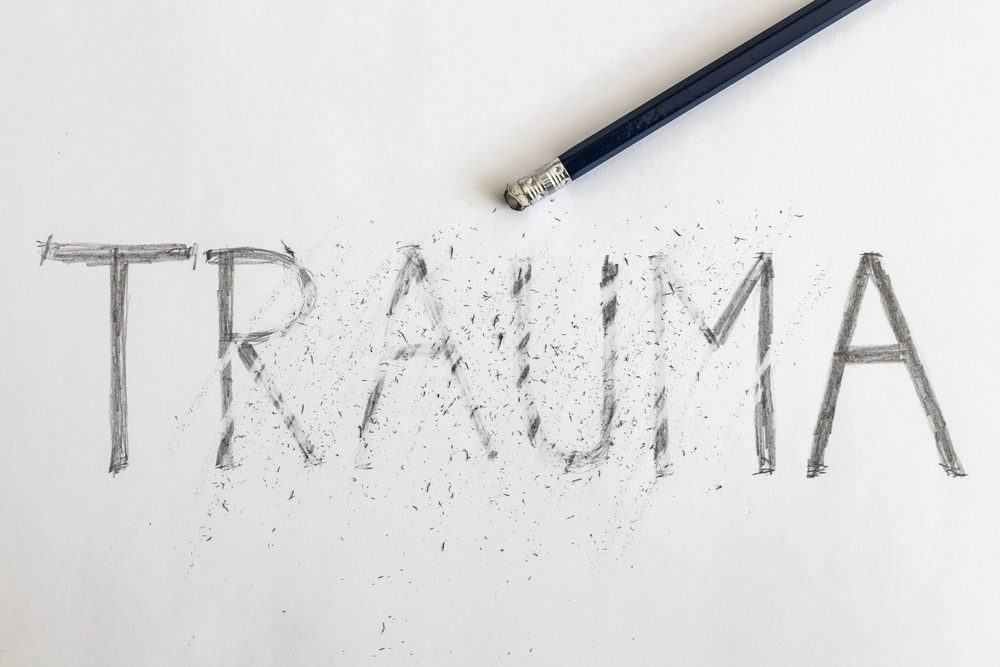PTSD Therapy in Potomac

What is trauma?
Trauma typically develops from significant, shocking, and life-changing experiences. It can develop from a single, isolated incident, such as experiencing a terrifying car accident, and accumulative experiences, such as repeated childhood abuse. Many different types of experiences can lead to one feeling traumatized. Trauma is intrusive and has a direct impact on your mood and how you live your life. You may have thoughts, dreams, or emotions that make you feel like you are reliving the experience. You may avoid situations that trigger the traumatic memories and feelings. Perhaps you become vigilant, waiting for the traumatic experience to return, purely existing in “survival mode.” There are different types and symptoms of trauma, but all of them result in some form of contraction or narrowing of living a more engaged, expansive, and meaningful life. If you are searching for PTSD Therapy in Potomac, MD contact us today.
What is PTSD?
Post-traumatic stress disorder (PTSD) is a psychiatric disorder that can occur in people who have experienced or witnessed a traumatic event such as a natural disaster, a severe accident, a terrorist act, war/combat, rape, or other violent personal assault. Anyone can get PTSD at any age. This includes war veterans and survivors of physical and sexual assault, abuse, accidents, disasters, and many other traumatic events. PTSD affects approximately 3.5 percent of U.S. adults, and an estimated one in 11 people will be diagnosed with PTSD in their lifetime. Women are twice as likely as men to have PTSD. Diagnosis of PTSD requires exposure to an event that involved the actual or possible threat of death, violence, or severe injury.
Your exposure can happen in one or more of these ways:
- You directly experienced the traumatic event
- You witnessed, in person, the traumatic event occurring to others
- You learned someone close to you experienced or was threatened by the traumatic event
- You are repeatedly exposed to graphic details of traumatic events (for example, if you are a first responder to the scene of traumatic events)
Examples of traumatic events that can trigger PTSD
- Severe accidents or injury
- Combat exposure
- Natural disasters
- Personal assault
- Physical abuse
- Emotional abuse
Do I need to see a PTSD Therapist?
People with posttraumatic stress disorder (PTSD) have intense, disturbing thoughts and feelings related to their experience that last long after the traumatic event has ended. They may relive the event through flashbacks or nightmares; they may feel sadness, fear, or anger; and they may feel detached or estranged from other people. People with PTSD may avoid situations or people who remind them of the traumatic event. They may have strong adverse reactions to something as ordinary as a loud noise or an accidental touch.
Some common symptoms of PTSD include:
- Helplessness
- Guilt, shame, or self-blame
- Feeling shut-down, flat, or dissociated
- Avoidance of people, places, or situations
- Quick to anger and extreme moodiness or irritability
- Difficulty with short-term memory
- Depression
- Fearfulness
- Nightmares/reliving the trauma
- Startled response to loud noises or unexpected situations
- Anxiety
- Social/relationship difficulties
- A lost sense of purpose and/or a bereaved sense of guilt
What makes PTSD such a challenging experience to live with is that a person might not start experiencing symptoms for months or even years after an event.
How Can a PTSD/Trauma Therapist Help?
Posttraumatic stress and trauma therapy can help you regain a sense of control over your life. At Washington Psychological Wellness, our trauma therapists can help you understand how feelings of isolation, loneliness, shame, anxiety, or depression are often a result of the self-defensive, biological response to unrecognized and unprocessed trauma.
During therapy, we are here to honor and validate the emotions and experiences of complex and relational trauma. We don’t look at trauma response and other big emotions as something that’s broken and needs to be fixed. Instead, we interpret your distress as a message that your mind and body are sending you. We work together to understand what they’re trying to teach you about your experience, needs, values, and identity and create opportunities for healing.
You are a resilient and remarkable person, and the more you understand and accept your value, the more you can advocate for and protect your needs.
During trauma therapy, we will be learning the impact of trauma on your life and how you can regain a greater sense of control. Over the course of your therapy sessions, we may:
- Observe moment-to-moment experiences to gain awareness of how trauma is stored in your body and understand your unique threat response
- Track your triggers and thought and behavior patterns, so you can identify these situations as they arise and start to regain control over the experiences
- Practice boundary setting to create a more secure emotional environment where you can feel safer
- Cultivate intimacy in your relationships, so you can build a support system and community where you feel confident enough to explore and grow as an individual
Combing these treatments can help improve your symptoms by:
- Teaching you skills to address your symptoms
- Helping you think better about yourself, others, and the world
- Learning ways to cope if any symptoms arise again
- Treating other problems often related to traumatic experiences, such as depression, anxiety, or misuse of alcohol or drugs
Ready to Learn More About PTSD Therapy in Potomac, MD?
Book a 15 minute intro call
